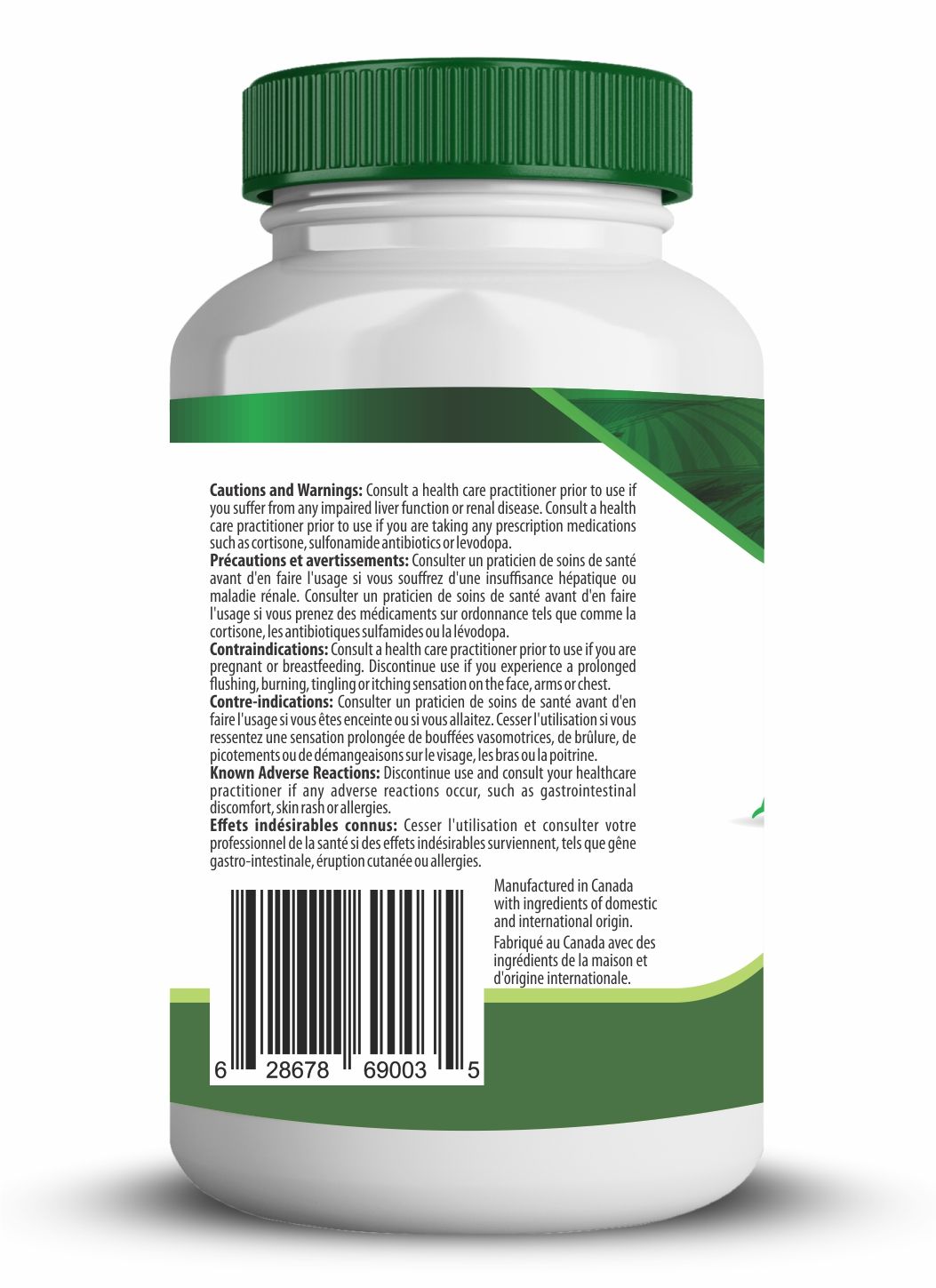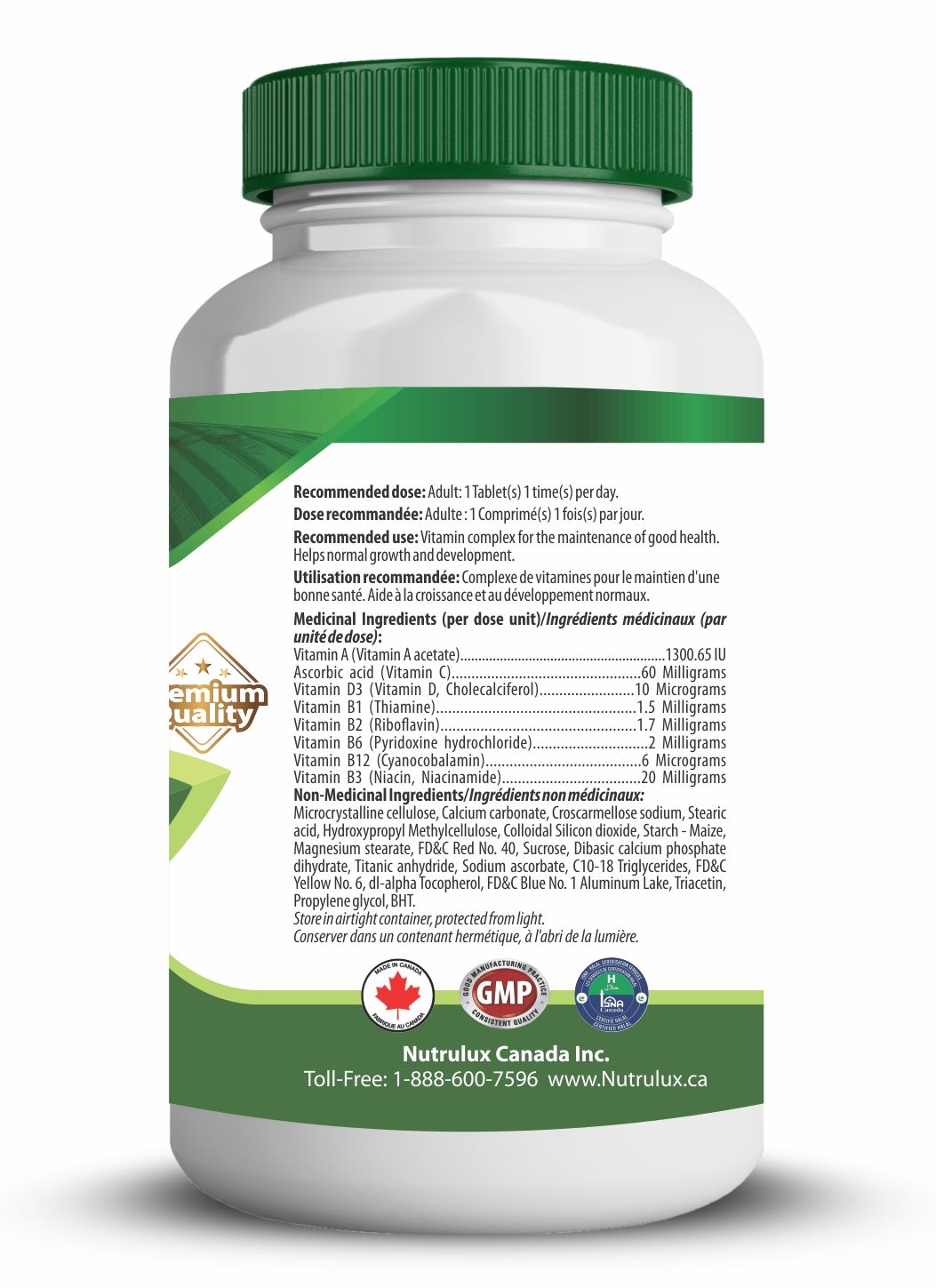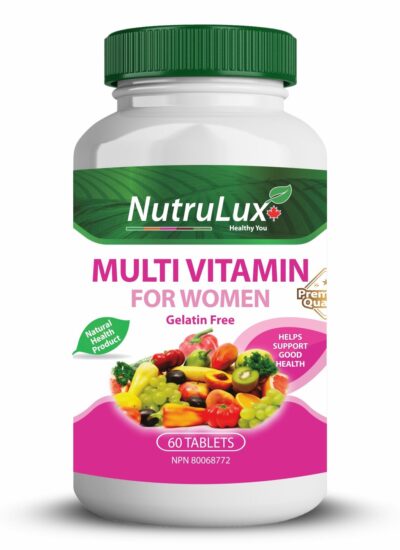
Multivitamin For Men ( 60 mg Vitamin C ) Halal Gelatin Free Tablets
$14.99
Every person needs a healthy intake of essential vitamins and minerals, including vitamins A, C, D, E, K and F, iron, calcium, magnesium, and zinc. And chances are, you’re not getting enough of them from your diet alone. That’s why you should start taking multivitamins, which are used to supplement your diet and make sure you’re getting all the proper nutrients your body needs.
Recommended dose: Adult: 1 Tablet(s) 1 time(s) per day.
Recommended use: Vitamin complex for the maintenance of good health. Helps normal growth and development.

Buy 1 & Get 1 Free
Description
What are Multivitamins for Men?
Every person needs a healthy intake of essential vitamins and minerals, including vitamins A, C, D, E, K and F, iron, calcium, magnesium, and zinc. And chances are, you’re not getting enough of them from your diet alone. That’s why you should start taking multivitamins, which are used to supplement your diet and make sure you’re getting all the proper nutrients your body needs. Notably, dietary supplements are not regulated by the Food and Drug Administration, leading to a consumer market saturated with inadequate options. There’s a broad range of multivitamin brands, from affordable to overly expensive. To create this curated list, we took into account price, quality, certifications and vitamin and mineral quantities. Here are our top picks for the best men’s multivitamin. Men who want an extra boost of nutrition can consider taking multivitamins. There are thousands of brands touting hundreds of ingredients and choosing the best one might feel like a challenge.
MULTIVITAMINS, ALONG WITH
protein powders and creatine, rank right up there as some of the most popular supplements for men. And that’s not really a huge surprise, when you think about it, because there are so many factors at work with multivitamins. First, there’s a generational factor. You may remember your dad (or grandfather) taking a multivitamin daily. He may have even encouraged you to take one so that you could “grow up big and strong.” Maybe you even say the same thing to your own kids as you remind them to take their daily gummy. Second, there’s the general “that-makes-sense” factor. If you’re going to take a vitamin, shouldn’t you take a vitamin that is all the vitamins? Multivitamins are multiple vitamins, combined, and who likes taking more than one vitamin? And, finally, there’s the cover-your-bases factor. Even if you believe that you already eat a healthy diet, you might think that there’s a nutrient you’re missing. Maybe you have a strong distaste for rutabagas and you’re thinking, “there’s probably something important in rutabagas, nutrition-wise, that’s probably also in a multivitamin, and multivitamins surely don’t taste as terrible as those godforsaken rutabagas.”
Why should men take a multivitamin?
A randomized clinical trial (the gold standard in research) found an 18 percent reduction in cancer risk among initially healthy older men who took a daily multi for more than a decade. If you do have a highly restricted or poor diet, suffer from a gastrointestinal problem that impairs nutrient absorption such as celiac disease, or take certain medications including proton pump inhibitors for heartburn, then you may need a multivitamin and/or a specific nutrient supplement. This is the kind of situation where if you haven’t already talked to your doctor about a multivitamin, it’s time. If you take a multivitamin, it’s probably because you want to do everything you can to protect your health. But there is still limited evidence that a daily cocktail of essential vitamins and minerals actually delivers what you expect. Start with asking yourself why you would consider taking a multivitamin. If you suspect your diet is nutritionally lax, focus your efforts there. Researchers looked at the effect of long-term multivitamin use in healthy men on various aspects of health. Here is what they found:
- Cancer: Men were 8% less likely to be diagnosed with cancer. The protective effect was greatest in men with a history of cancer.
- Vision: Lower risk of developing cataracts.
- Cardiovascular disease: No protection against heart attacks, strokes, or death from cardiovascular disease.
- Brain: No protection against declining memory or mental skills.
- Caveat: Because of PHSII’s design, the findings on memory loss and vision are somewhat more likely to be chance findings than the cancer and cardiovascular disease results.
























